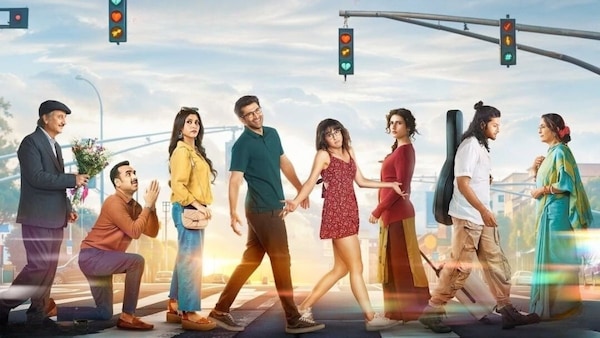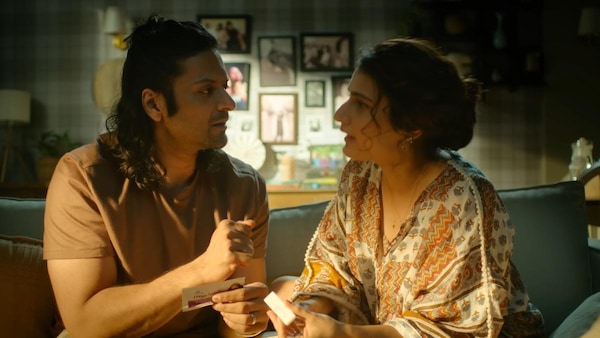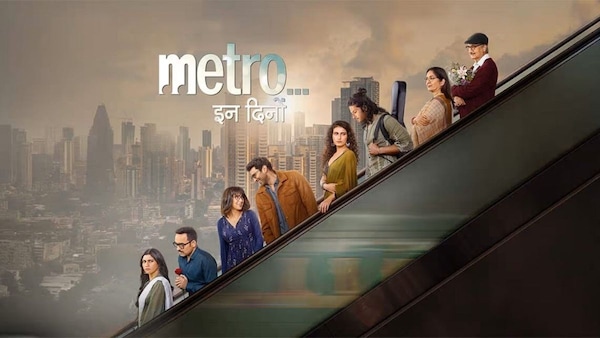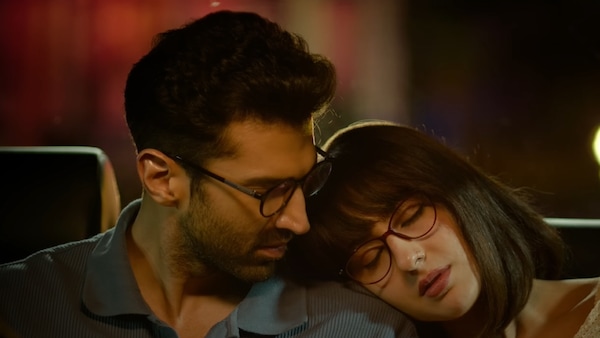Metro... In Dino: Anurag Basu’s Musical Throbs With Longing
This is #CriticalMargin, where Ishita Sengupta gets contemplative over new Hindi films and shows.

Last Updated: 08.11 PM, Jul 06, 2025
FEW filmmakers aim as high as Anurag Basu. The striving is driven more by curiosity than ambition — the desire to see what can be achieved when a story is set to music and punctuated with whimsy. The symphony is rapturous but not guaranteed, making his storytelling both messy and distinct. Inconsistent as this might be, it can also be rewarding: the highs in his films are so potent that the lesser moments are frustrated and elevated in anticipation
Metro... In Dino is no exception. Basu’s feature is characteristically chaotic, buzzing with the cacophony of a crowd and beating with a single heart. It has the levity and longing of his later style and bleeds more than builds. It carries the hurt of unspoken words and the humour of saying it aloud. A spiritual sequel to Life in a... Metro, Basu’s latest has similar vibes but differs in spirit. If the 2007 film was concerned with the loneliness of citied existence then Metro... In Dino is about the cities we carry within ourselves.

This renders the outside incidental. Although the narrative is spread across metropolises — Kolkata, Mumbai, Delhi, Bangalore — one would be hard-pressed to distinguish. None carry the filmmaker’s careful gaze evident in his previous works. Conversely, characters inherit the fate of urban landscapes. They are bored, neglected and pained by being overlooked. Infidelity exists but is limited to the desire for attention.
Putting people at the centre is a gutsy call from Basu who largely leans on visuals. He does something similar here but the images sting with pain, amplified by the set of actors he has put together. Their faces, bristling with injury and wonder, not only prod a reading that the writing only hints at but validates investing in silences.
The template is familiar: four couples, each linked to the other and all troubled. Shivani (Neena Gupta) and Sanjeev (Saswata Chatterjee) live in Pune. They have been married for a long time and their daughters are well-settled. Kajol (Konkona Sen Sharma) has a teenage daughter, and Chumki (Sara Ali Khan) is engaged to be married. Socially awkward and indecisive, she is eager to tie the knot assuming the other marriages in the family are solid. Her boyfriend is a textbook Bangalore dude-bro but it works.

Her best laid plans get dismantled when, drunk out of her senses, she runs into Parth (Aditya Roy Kapoor), a Delhi-based travel vlogger. His married friends, Shruti (Fatima Sana Shaikh) and Akash (Ali Fazal) are dealing with their set of issues. Both are in comfortable jobs but Akash, an aspiring musician, wants more. He looks at his father, a gifted man stuck in an ordinary life, as a cautionary tale.
This fear of stagnancy, of settling for less, cuts across the characters but comes with fuller force through the women. Men too share the dread (Monty, Kajol’s husband, joins a dating app — Pankaj Tripathi is smashing as a man in a jaded companionship; Akash quits his coding job to be a singer) but their aspiration translates as either transgressive or tragic. As if it is an excess. For the women, this feels like a right, an ask for dignity. For instance, tired of feeling unseen in the marriage, Shivani goes to Kolkata for a college reunion (and meets her old friend Parimal, essayed by Anupam Kher) without telling her husband. When Kajol catches Monty on a dating app, she makes him work for an apology.
It is an interesting shift, one that fundamentally draws the line between the two Metro(s), and outlines the way urban spaces have changed for women and how women have changed urban spaces. More assertively it hints at the lapse in time and doubles up as a course correction almost from the filmmaker where the female characters, unlike the 2007 film, are incentivised beyond reproach.

The actors help tremendously. Konkona is sublime as Kajol. Hers is a tricky role for how linear it feels in emotion but she inhabits the rage of being cheated upon as the humiliation of being disrespected. Basu, to his credit, gives Kajol the space and time to vent, and resists easy shorthands. Ditto for someone like Shruti. Fatima is evocative and although she keeps giving chances to Akash, an Imtiaz Ali character if there was one, she sets aside the hurt she accrued in the process. Theirs is the most volatile relationship in the film and although not much happens, the performances supply context when the written word fails.
In fact, Metro... In Dino comes alive when desire and dread intersect and the peculiarity of relationships is in focus. Basu goes back to visuals, leaves the stage for Pritam and band to fill in the gaps (crafting an album that grows on you), and in the second half resorts mostly to montages. A lot keeps happening — a marriage is fixed, a pregnancy is miscarried, a selfless old man tricks to be alone — and it might seem random but Metro... In Dino unfolds really in the cracks of the moving images with Basu ensuring that what we see and hear (like a guitar riff sounding like a broken heart) gives us enough to keep looking.
Through the cross-cutting of music and memory, he upholds the complexities of companionship and resists offering solutions. The filmmaker had done the same in Life in a... Metro. But this time around, he keeps even resolutions at bay. Characters upend and settle for expectations, proving to be cliches while escaping them. But the joy of watching them is sustained by the central assumption that people carry cities within them. And ultimately, who they choose to stay with are those who make the effort to keep visiting.
